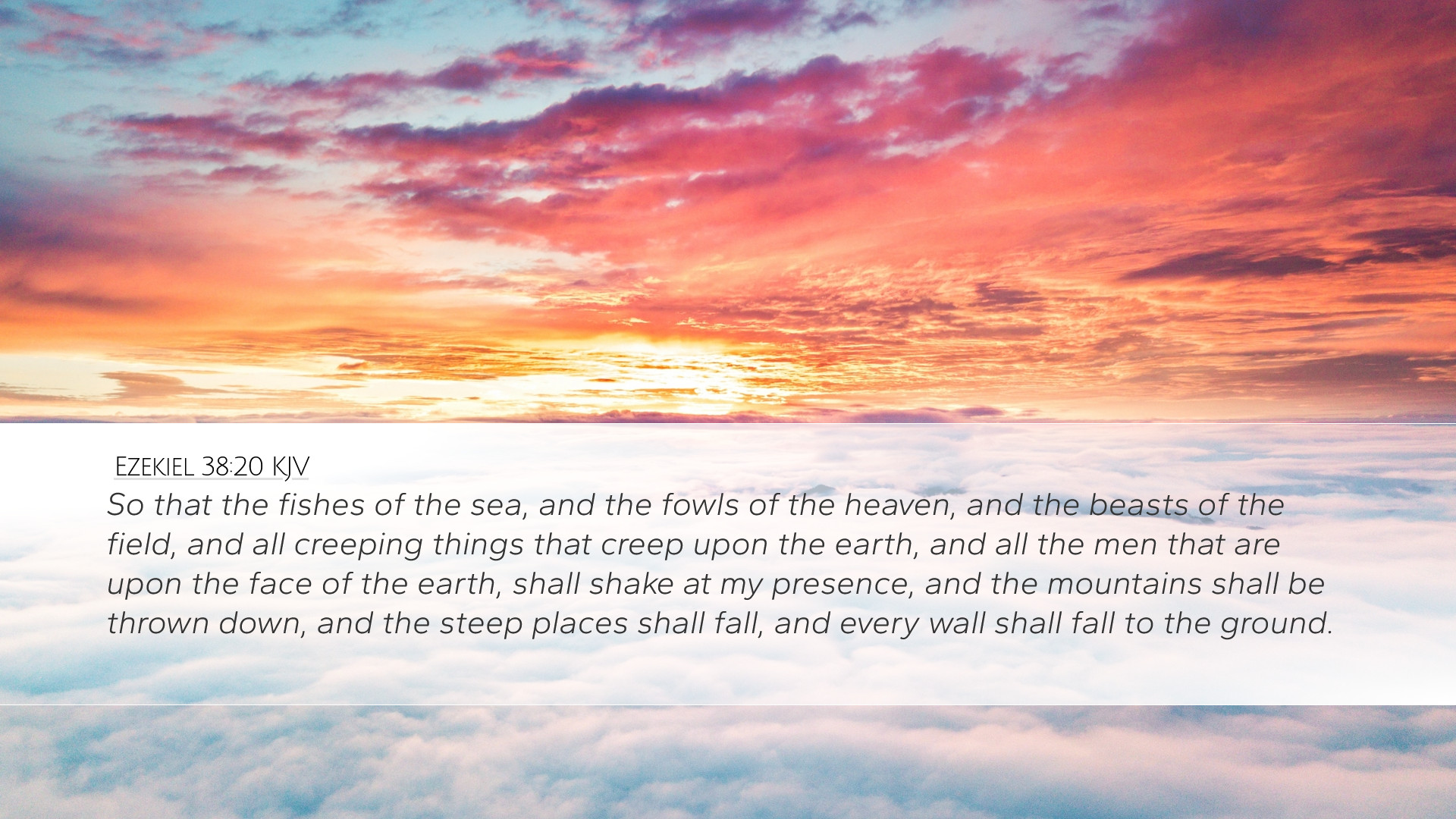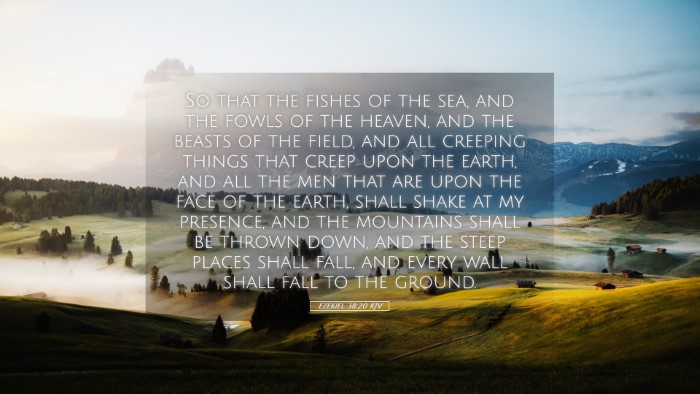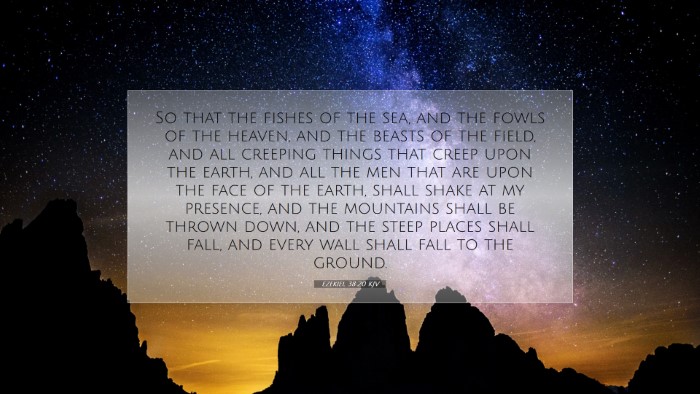Ezekiel 38:20 - A Comprehensive Commentary
Ezekiel 38:20 reads:
"The mountains shall be thrown down, the steep places shall fall, and every wall shall fall to the ground."
This verse is a part of the prophecy concerning the invasion of Gog and Magog, which presents profound theological implications and apocalyptic imagery. Below is a compilation of insights derived from public domain commentaries, particularly from Matthew Henry, Albert Barnes, and Adam Clarke, offering a detailed exploration.
Contextual Overview
Ezekiel 38 serves to outline the Lord’s judgment on nations that rise against Israel. It occurs within a larger prophetic framework where God assures Israel of His sovereignty and protection, particularly in times of great tribulation.
Interpretive Themes
- The Divine Judgment: This passage emphasizes God’s judgment that disrupts the natural order. The imagery of mountains and walls falling symbolizes not just physical destruction but also the collapse of human pride and rebellion against divine authority.
- God’s Sovereignty: This verse starkly illustrates that despite man’s conspiratorial actions against God’s people, His plans prevail. It serves as a reminder to readers that God is actively involved in history and will execute justice.
- Symbolism of Natural Phenomena: The use of natural imagery suggests that God’s intervention in human affairs can transcend natural laws, reflecting His omnipotence.
Detailed Commentary
Matthew Henry’s Insights
Matthew Henry highlights the limitations of earthly power when opposed to divine authority. He notes that mountains—symbolic of strength and stability—fall before divine judgment:
- Destruction of Human Pride: Henry emphasizes that the falling mountains represent the downfall of human pride and strength. Nations that oppose God and His people ultimately face divine retribution.
- Cosmic Imagery: The imagery indicates a cosmic upheaval, underscoring the thoroughness of God's judgment. Henry draws parallels to other scriptural instances where God’s presence was marked by natural disasters, reinforcing that the divine response is capable of immense power.
- Hope for the Faithful: While portraying judgment, Henry also elucidates God’s surveillance over His people, offering them hope amidst turmoil. The destruction of the adversaries serves to reaffirm Israel’s position as God’s chosen.
Albert Barnes’ Reflections
Albert Barnes focuses on the prophetic nature of this verse in the eschatological context:
- Eschatological Implications: Barnes posits that the events predicted have implications that transcend their immediate context, pointing towards a culmination of historical struggles against evil.
- Physical and Spiritual Collapse: He suggests the fall of mountains represents both a literal geographical event and a metaphor for the fall of all strongholds of idolatry and oppression that stand against the people of God.
- Engagement with the Divine: Barnes comments on how these prophecies demonstrate God’s ultimate victory over the forces of darkness, urging readers not to be dismayed by the trials they face, as God will act decisively.
Adam Clarke’s Analysis
Adam Clarke offers a rich interpretation, particularly on the implications of the imagery used in this prophecy:
- Symbolism of Walls: Clarke discusses the significance of walls and steep places falling—literal structures that symbolically represent the safety and security provided by human constructs. When these fall, it indicates God’s ability to dismantle false security.
- Theological Reflection: Clarke sees this as a reminder to believers that human defenses are ultimately futile against God’s plan. He emphasizes the importance of relying on God rather than earthly securities.
- Call to Repentance: Finally, Clarke interprets this verse as a call to repentance for those who oppose God. The warnings embedded in prophetic literature often lead the faithful back to reflections on their own spiritual standing.
Concluding Thoughts
The verse from Ezekiel 38:20 stands as a powerful affirmation of God’s sovereignty and righteousness in the face of human rebellion. As we reflect on the collective insights from the esteemed commentaries, several vital applications arise:
- Encouragement in Trials: Believers are encouraged that God is ultimately in control, and His judgment brings hope to the faithful.
- Awareness of Divine Authority: The portrayal of natural upheaval as a likeness to divine intervention challenges theologians to consider modern applications where the systems of the world seem contrary to God’s truth.
- Call to Faithfulness: A recurring theme through these commentaries is a call to faithfulness, as God continually reassures His people of His plans amidst tribulatory circumstances.


